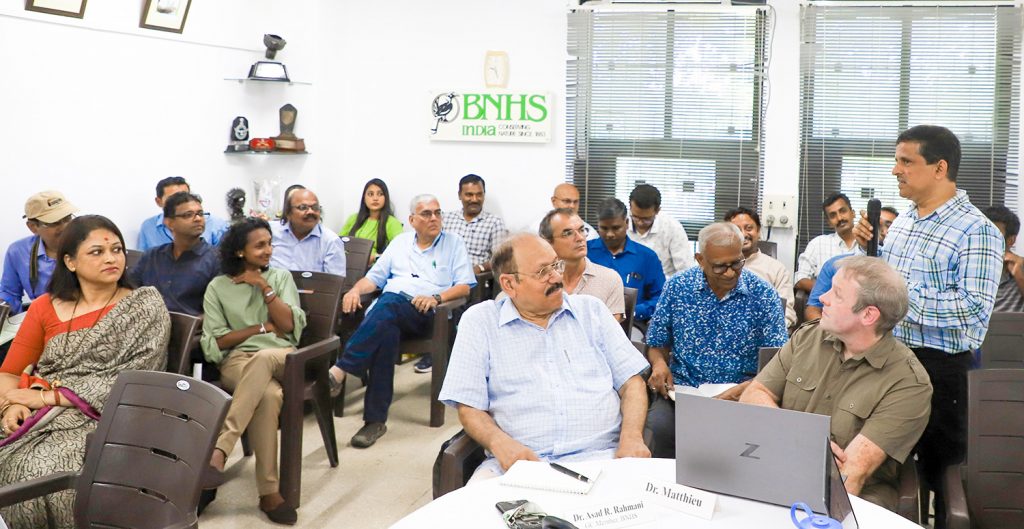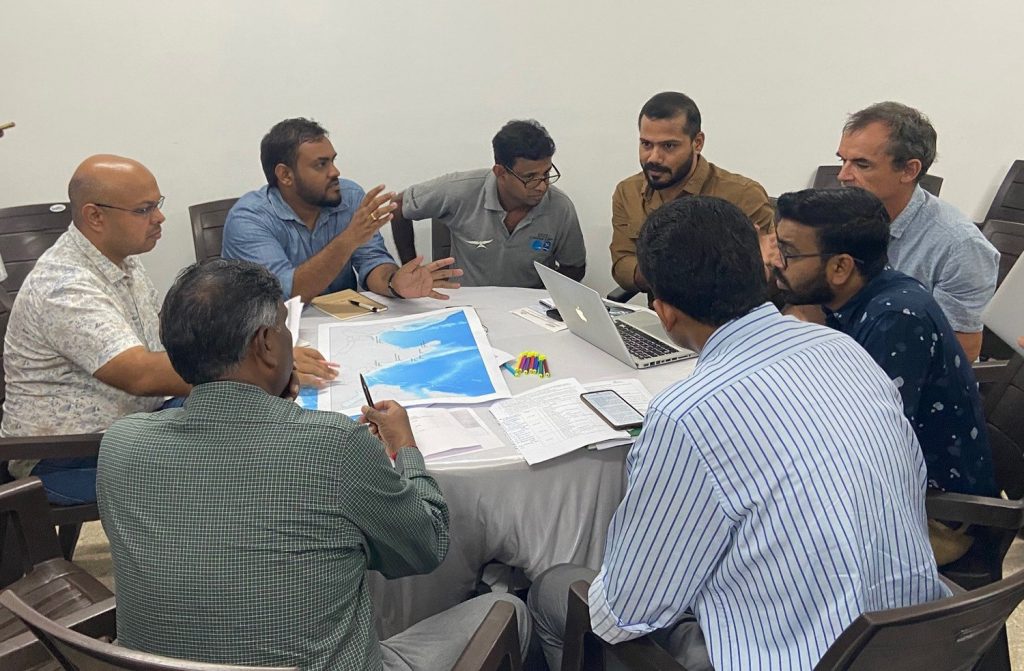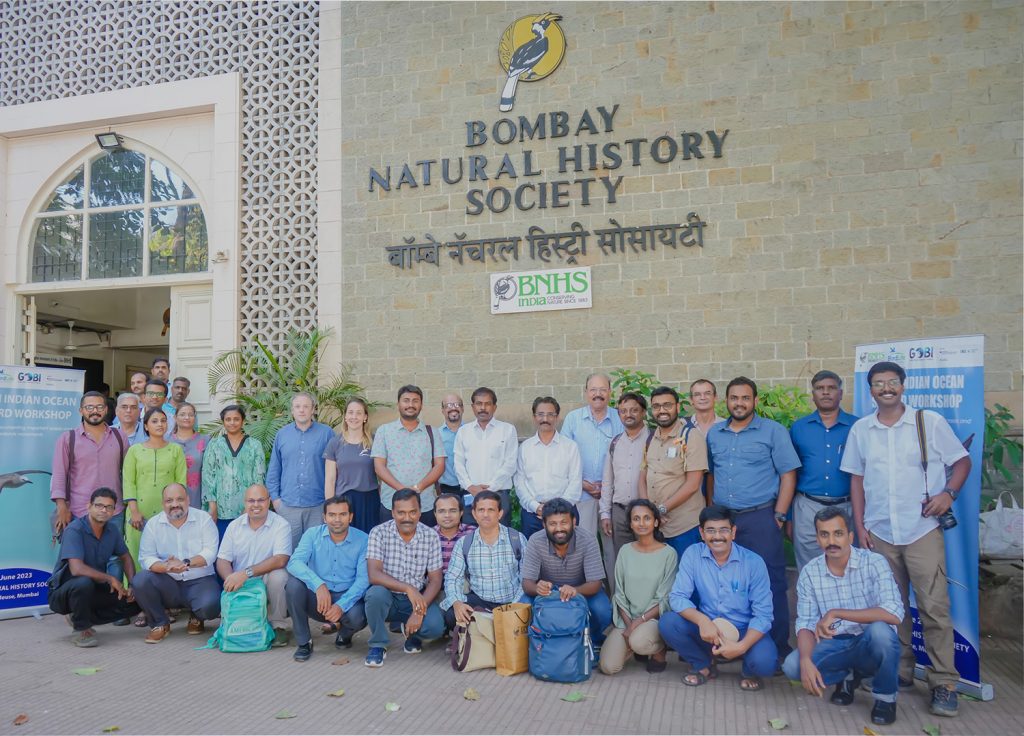By Tammy Davies, Ramesh Kumar Selvaraj, Sathiyaselvam P.
A 3-day workshop convened by BirdLife International and Bombay Natural History Society was held in Mumbai, India, in June 2023. The aim of the workshop was to bring together the available data to document major movement patterns by seabirds in the North Indian Ocean to complement the existing marine Important Bird and Biodiversity network and to discuss current and future threats, and research needs. This workshop was the first of its kind for the region and was supported by GOBI’s grant from the International Climate Initiative.
Participants comprised 50 scientists and researchers from 6 countries who are specialists in seabirds in the region. The workshop also benefitted from the participation of eight government officials, including representatives from the Forestry Department, Fisheries Department, Port Authority, Fishermen Association, and Environment Department.
Overall, the workshop summarised a vast amount of data on seabirds in the North Indian Ocean from a range of data sources, and although data gaps were identified, it was clear that there is enough data available to move forward with conservation recommendations. It was also concluded that although the region is often considered to be low in seabird abundance, it may be higher than previously thought with many non-breeding birds migrating to the region from as far as the Arctic, Antarctica, and the West Indian Ocean to use offshore waters that are not commonly surveyed.

The culmination of participatory mapping of data and expert knowledge identified a major movement corridor for seabirds off the south-west Indian coast and Sri Lankan coast. This potential migratory bottleneck needs further work to determine if the area or a sub-set can meet the criteria for an Important Bird and Biodiversity Area.
Terrestrial threats were identified by the workshop as having a large impact on species in the region, and broadly categorised related to development of new infrastructure, and the subsequent loss of habitat. This suggests there is need to advocate for appropriate planning processes and environmental impact assessments to mitigate the impact of future developments on migratory seabirds.

The workshop concluded with participating government officials agreeing to meet to tackle marine threats collectively. It is planned to share outputs from the workshop at the Convention on Migratory Species Conference of Parties (CMS COP14) in October this year, and with States and Union Government of India to progress seabird conservation. A special issue of Hornbill Magazine, published by Bombay Natural History Society, on migratory species in the Indian Ocean has also been agreed.



